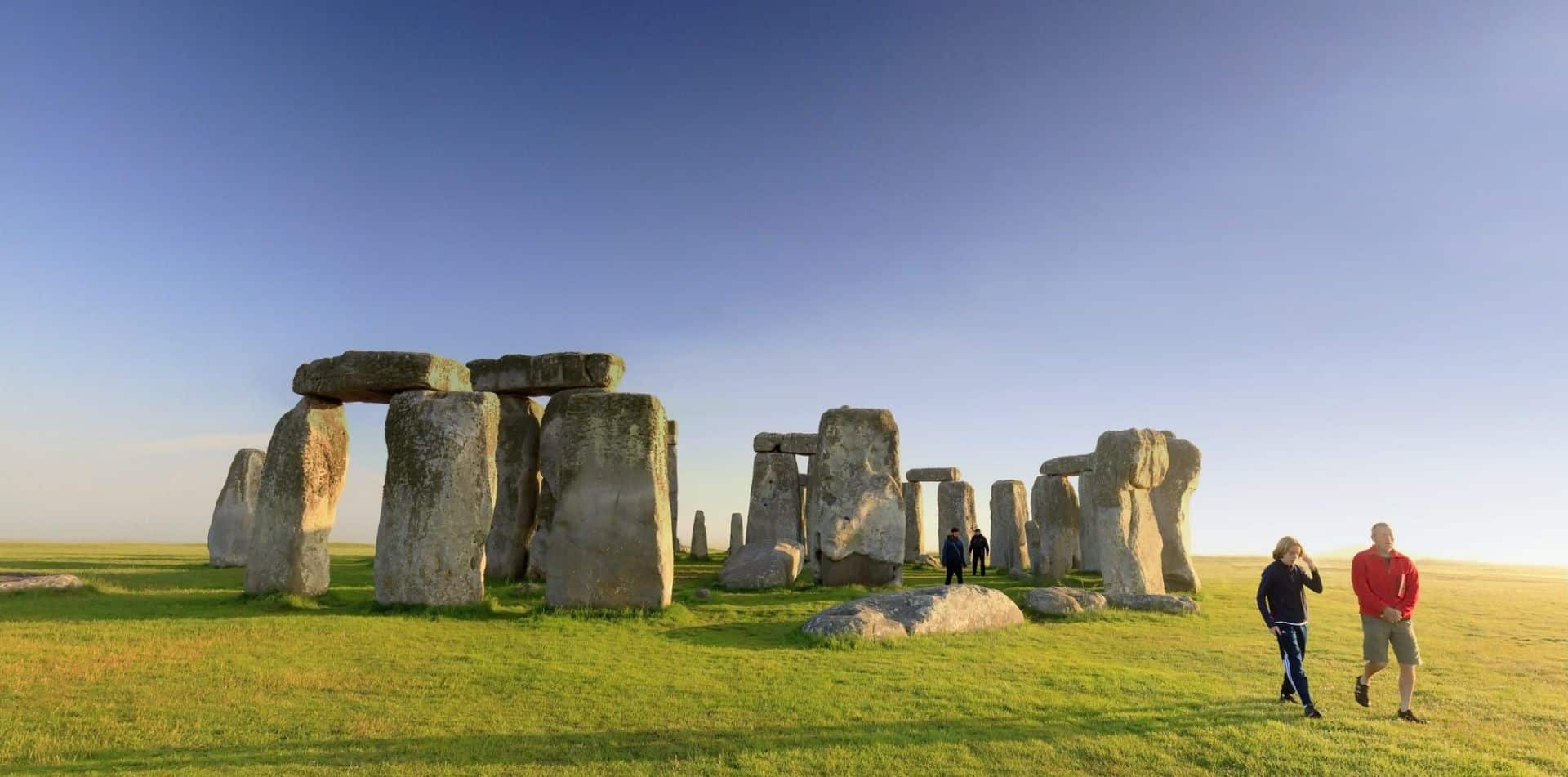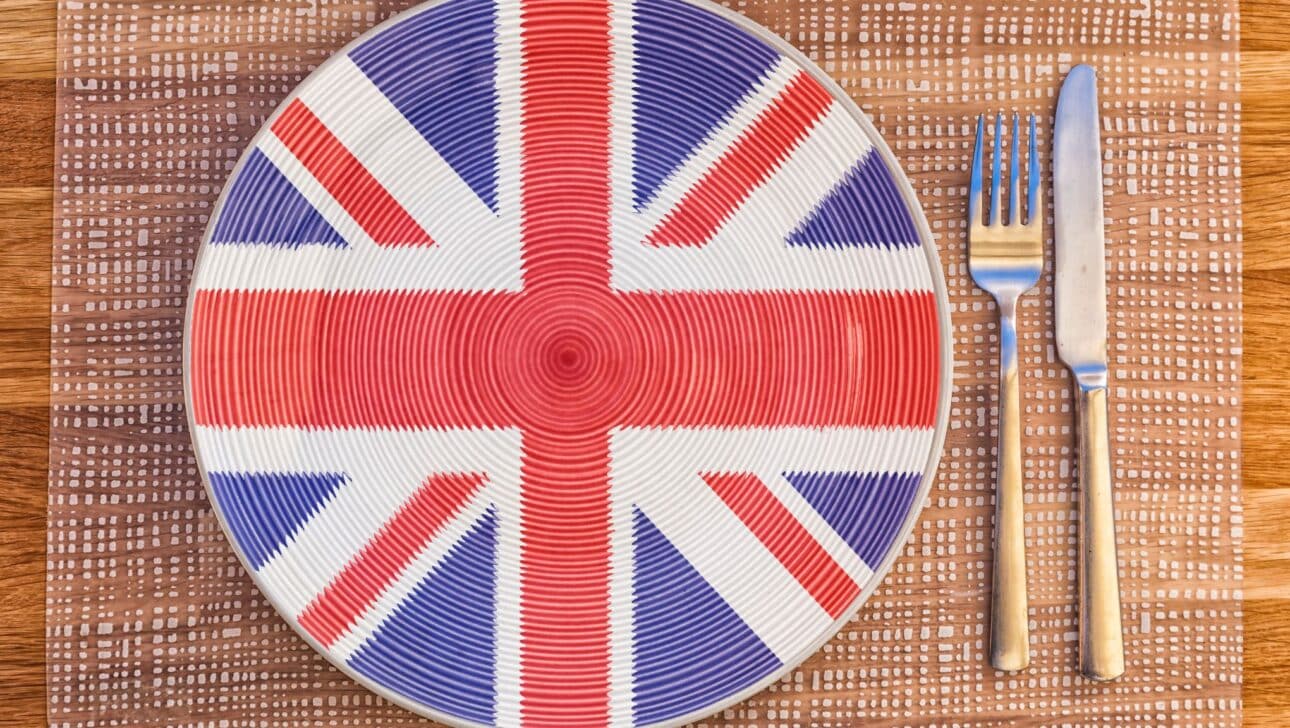England’s charm lies not only in its rolling hills and rugged coastline but also in its deeply rooted culinary traditions. From the windswept cliffs of Cornwall to the golden stone villages of the Cotswolds, every bite tells a story of history, landscape, and hearty hospitality. Join us – along with our expert local guides – on curated walks through these storied lands and take a seat at the table for some local treats along the way!
Cornwall: Cornish Pasty

On Cornwall’s wild Atlantic coast, the Cornish pasty is more than just a meal—it’s a symbol of heritage. Originally created as a portable lunch for tin miners in the 17th and 18th centuries, the thick, crimped pastry crust allowed miners to hold their meal with dirty hands and discard the edge after eating. The savory filling of beef, potatoes, swede (rutabaga), and onions kept them fueled during their long underground shifts. Today, Cornish pasties are protected under EU law as a “Protected Geographical Indication” (PGI) product—meaning only pasties made in Cornwall, to traditional specifications, can carry the name.
Get The Recipe
To create this from the comfort of your home, try this recipe (serves 4):
Ingredients:
For the pastry:
- 3½ cups all-purpose flour
- 1 teaspoon salt
- ¾ cup cold unsalted butter, diced
- 6–8 tablespoons cold water
For the filling:
- ½ pound beef skirt steak or chuck, finely diced
- 1 medium potato, peeled and diced small
- 1 small swede (rutabaga), peeled and diced small
- 1 small onion, finely chopped
- Salt and pepper to taste
- 1 egg, beaten (for glazing)
Step by Step:
1. In a large bowl, mix flour and salt. Rub in the butter until it resembles breadcrumbs. Add cold water a tablespoon at a time to form a firm dough. Chill for 30 minutes.
2. Preheat oven to 400°F, and in another bowl, toss beef, potato, swede, and onion. Season well with salt and pepper.
3. Divide the chilled dough into four equal pieces. Roll each into an 8-inch circle.
4. Place filling on one half of each circle. Fold over and crimp the edges to seal.
5. Brush with beaten egg and bake for 45–50 minutes, until golden brown. You can serve warm or enjoy cold—just as Cornish miners once did.
Classic English Scones for Cream Tea

Nestled among rolling hills and honey-colored cottages, the Cotswolds are synonymous with leisurely afternoons spent over a cream tea. A true English cream tea features freshly baked scones, clotted cream (a thick, rich cream originally from Devon and Cornwall), and strawberry jam, accompanied by a strong pot of tea. There’s even a lively debate between Cornwall and Devon on the proper order of cream and jam—Cornwall favors jam first, Devon cream first—but in the Cotswolds, the focus is simply on savoring the ritual.
Get The Recipe
To create this from the comfort of your home, try this recipe (makes 8 scones):
Ingredients:
- 2 cups all-purpose flour
- 1 tablespoon baking powder
- ¼ teaspoon salt
- 2 tablespoons sugar
- 6 tablespoons cold unsalted butter, diced
- 2/3 cup milk, plus extra for brushing
- Strawberry jam, for serving
- Clotted cream (or thick double cream), for serving
Instructions:
- Preheat oven to 425°F. Line a baking sheet with parchment paper.
- In a bowl, whisk together flour, baking powder, salt, and sugar.
- Rub in butter until mixture resembles coarse crumbs.
- Gradually stir in milk to form a soft dough. Knead lightly on a floured surface.
- Roll dough to about 1-inch thickness and cut out rounds with a 2½-inch cutter.
- Place on baking sheet, brush tops with milk, and bake for 12–15 minutes until risen and golden.
- Serve warm with generous spoonfuls of jam and clotted cream.
Whether it’s the rustic comfort of a Cornish pasty or the refined indulgence of a cream tea, these dishes are more than recipes—they are living traditions. Across Cornwall’s dramatic coastline and the Cotswolds’ gentle hills, food is a way of preserving history, sharing stories, and celebrating the simple pleasures of life.





